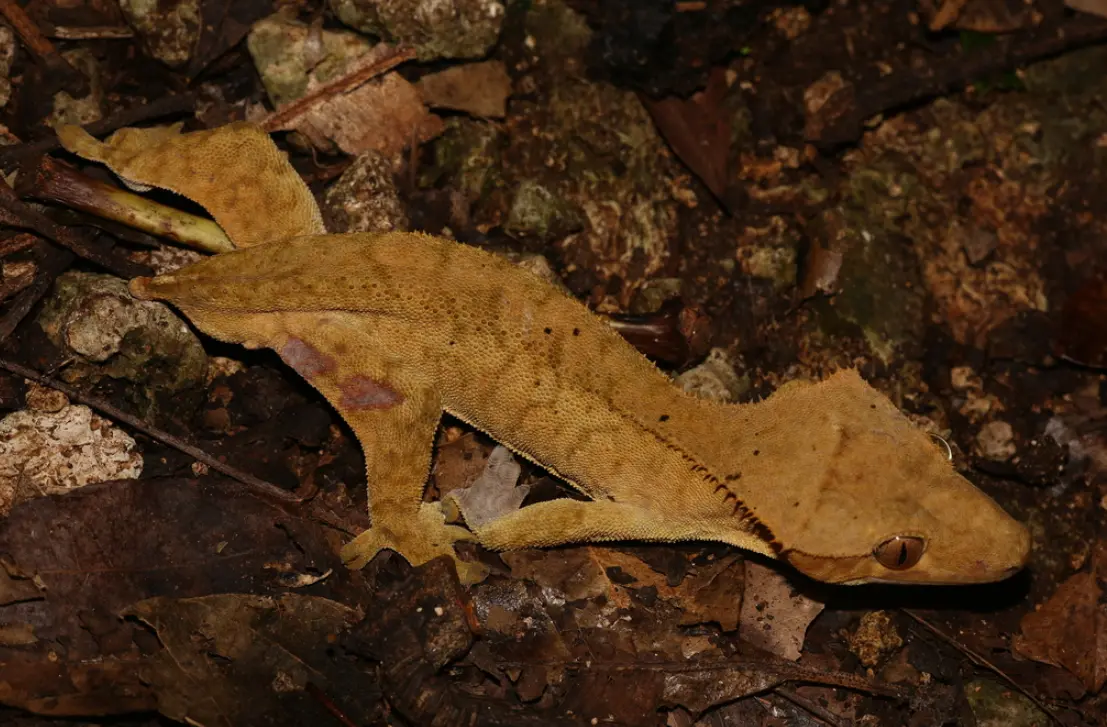But it’s risky and can cause a blockage in their digestion, which is called impaction.
If left untreated, this could become a deadly disease.
There have been reports of crested geckos dying from eating dirt, especially juveniles when using coco fibers, peat, soil mixes, etc.
Calcium and Mineral Deficiencies may be the main culprit Here…
Crested geckos may ingest substrate due to a lack of essential minerals, particularly calcium.
This condition, known as pica, drives animals to consume non-food items to meet nutritional needs.
Ensure your gecko’s diet includes a balanced commercial powdered diet supplemented with calcium and vitamin D3.
According to reptile nutrition experts, calcium deficiencies can lead to metabolic bone disease, making it crucial to monitor and supplement your pet’s diet adequately.
Signs of Deficiency:
- Weak bones,
- Lethargy.
- And abnormal bone growth.
Prevention: Dust live food with calcium powder and provide a UVB light source to aid in calcium absorption.
Aside from this, the following are also causes for this:
- Hunger: If your crested gecko isn’t getting enough food, it might start eating non-food items like dirt.
- Boredom: If your gecko’s enclosure doesn’t have enough stuff to keep it entertained, it might munch on things it shouldn’t, like dirt.
- Curiosity: Crested geckos are naturally nosy creatures and might explore and taste different things in their habitat, including dirt.
So, what should you do?
First, try to identify the cause.
If your crested gecko is exhibiting signs of a nutritional deficiency like lethargy, weakness, or tremors, consult a reptile veterinarian to determine the exact cause and create a treatment plan.
They may recommend supplementing their diet with calcium and vitamin D3, or switching to a commercially prepared crested gecko diet that meets all their nutritional needs.
If you suspect boredom is the culprit, enrich their environment to encourage natural behaviors and exploration.
Provide a variety of hides and climbing structures in different sizes and textures. Offer live plants for added visual interest and hiding spots.
Regularly rotate the layout of their enclosure to keep things interesting.
Finally, ensure their enclosure has proper humidity levels (aim for 50-70%). If your gecko’s substrate appears dry and they’re licking it frequently, mist their enclosure more often.
However, avoid soaking the substrate, as this can promote mold growth.
Hope this helps…
FAQs
Q: Is it normal for crested geckos to eat substrate?
No, it’s not normal behavior.
While accidental ingestion can happen, frequent substrate eating usually indicates an underlying issue like a nutritional deficiency, boredom, or seeking moisture.
Q: Should I take my crested gecko to the vet if they’re eating substrate?
If it’s a one-time occurrence and your gecko seems healthy otherwise, it’s likely not a major concern.
However, if it’s happening frequently, it’s best to consult a reptile veterinarian to rule out any underlying health issues

